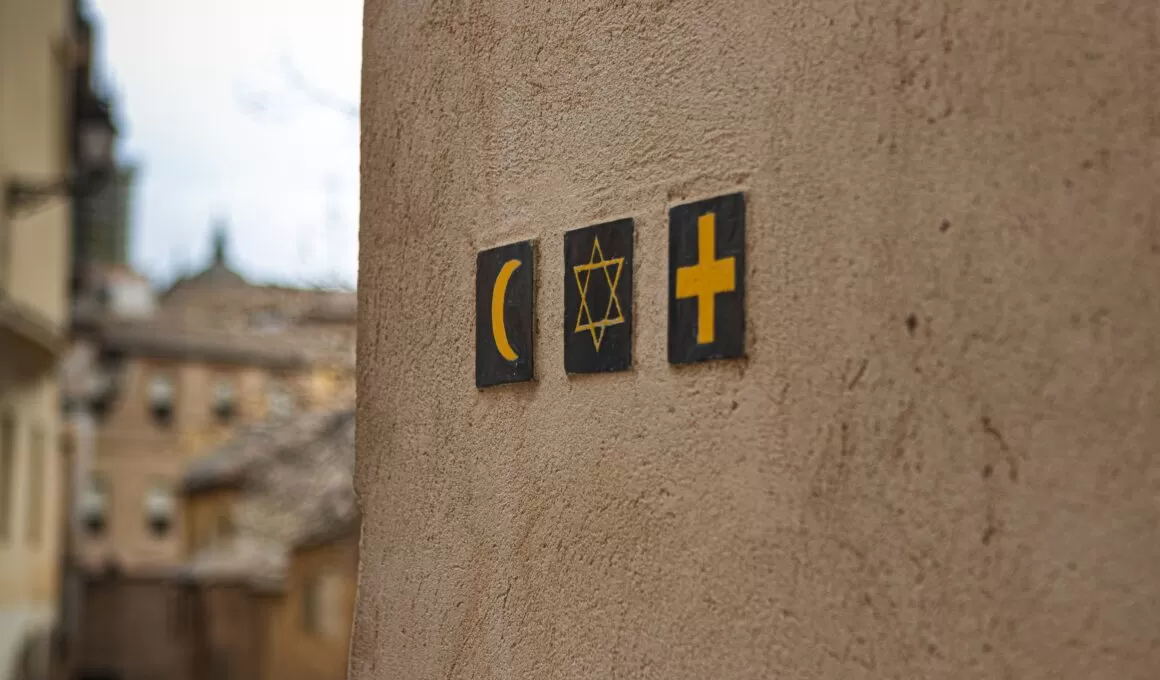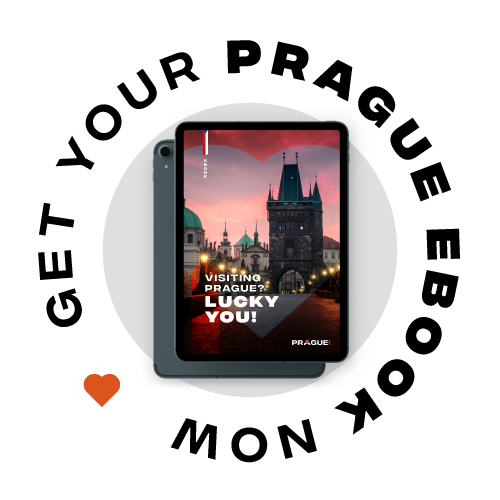Table of contents Show
The religion of the Czech republic has evolved over many decades. Understanding the diverse religious landscape of the Czech Republic is crucial to understanding this beautiful nation’s cultural and historical complexity. Exploring the complex religion of the Czech Republic which has played a key part in forming Czech identity, is essential to getting to know the country and its people.
Czech history surprisingly includes a wealth of religious figures and ideas, such as Jan Hus, the reformer who influenced Martin Luther, and the famous Moravian Brethren, who in 20 years did more outreach than the whole Protestant church in the following 200 years combined.
Despite their rich history, modern-day Czechs are deeply secular and suspicious of religion due to the centuries-long dominance of the Catholic Church and the overwhelming influence of communism. Some claim that its citizens are more likely to reject the existence of God and the supernatural than in any other country.
Tracing the History of Religion in the Czech Republic
The history of religion in the Czech republic spans almost a thousand years, making it a fascinating read. From its initial Christianization to periods of religious reform, suppression, and final secularization, the nation’s complicated connection with faith is reflected in this story.
There have been both peaceful and violent moments in the history of religion in the Czech Republic. Slavic paganism had an impact on the area before Christianity arrived. Christianity was first introduced to the region in the 9th century when Saints Cyril and Methodius arrived. Bohemian Reformation leaders such as Jan Hus in the fifteenth century sowed the seeds of religious variety by creating a rift within the Catholic Church.
The Role of the Czech Church in the Nation’s History and Culture
After centuries of theological evolution, reform, and sociopolitical changes, the role of the Czech Church in both culture and history is complex.
Early Christianization
The Czech Church helped Christianize the region early on. The nation embraced Christianity in the tenth century under St. Wenceslaus.
Catholic Dominance
The Czech Church has long been associated with Catholicism. Catholic churches, cathedrals, and traditions dominated the nation’s religious landscape, with St. Vitus Cathedral in Prague prominent.
Hussites and Jan Hus
Jan Hus’ 15th-century Hussite movement was a major religious reform movement in the Czech Church. The movement’s criticism of the Catholic Church shaped Czech religious identity and promoted independence and reform.
Religious Diversity and Decline
Religious variety declined after the 17th-century Peace of Westphalia restored Catholic supremacy in the Czech territories.
Atheism, Secularism
As the Communist regime promoted atheism and suppressed religion, the 20th century saw major political and social upheavals. This period shaped the nation’s religious landscape, making a large section of the people atheist.
Present Landscape
A large fraction of the Czech Republic’s population is atheist, agnostic, or non-religious. Catholicism and Protestantism still flourish in the country.
Religion Tolerance
The Czech Republic values religious freedom and tolerance. Its history of religious plurality and oppression has fostered tolerance and respect for many faiths.
A Glimpse into the Major Religions of the Czech Republic
Despite its reputation for secularism and the fact that many citizens consider themselves to be atheists or nonreligious, many different faiths have made an impact on the country. Here is an overview of the major religions of the Czech republic:
Roman Catholicism
The Czech people have a long history of practicing Catholicism, and the faith was the dominant one in the country for many centuries.
There are many Catholic churches and cathedrals in the Czech Republic.
St. Vitus Cathedral in Prague is a significant icon of Catholicism in the country.
Catholicism in Prague is still a sizable religious group in the country, despite the general fall in religious observance.
Protestantism
The ideas of people such as Jan Hus and the Hussite movement shaped the Protestant faith in Prague which has a long history in the country.
Several Protestant churches can be found in the Czech Republic. These include the Evangelical Church of Czech Brethren and the Czechoslovak Hussite Church.
Atheism and the non-religious
The Czech Republic is widely considered to be one of Europe’s most secular countries.
There is a sizable non-religious, non-theistic, or atheist population.
The impact of the Communist regime and past experiences of religious persecution are blamed for the atheist Czech republic.
Islam
The Muslim population in the Czech Republic is tiny but rapidly expanding.
A mosque and Islamic cultural centers can be found in the Czech city of Prague.
Immigrants, expats, and local converts all makeup different parts of the Muslim community in the Czech Republic.
Judaism
There is a sizable Jewish population in Prague and other Czech cities with a rich history for their group.
There are many synagogues and other Jewish cultural centers in the Czech Republic.
Josefov, Prague’s Jewish Quarter, is rich with history and culture.
Other Religions
Buddhism, Hinduism, and other New Age and alternative spiritual traditions all have a tiny but dedicated following in the Czech Republic.
The religious variety of the country benefits from the presence of these groups.
Exploring the Religious Landscape: Are Czech Religious?
What is the religion of the Czech republic? The Czech people’s religious identity is nuanced and dynamic. Early Czechs’ acceptance of Christianity, the difficulties posed by the Hussite movement, and the rise of secularism and atheism all left their mark on the country’s religious landscape. Today, the country exemplifies religious freedom and respect for all religions and worldviews, serving as a role model for the rest of the world to follow.
Although the Czech population is not especially devout, the country is deeply committed to religious freedom and tolerance. A culture of tolerance and respect for different faiths has developed as a result of the country’s long history of religious pluralism and religious persecution.
Atheism in the Czech Republic: A Secular Perspective
The Czech Republic’s political and socioeconomic landscapes saw dramatic shifts in the twentieth century. The country was part of the old Czechoslovakia, where the Communist regime pushed atheism and banned religious rituals. The religion of the Czech republic of this age will be remembered for how many people choose to label themselves as atheists or non-religious.
The Czech Republic is one of Europe’s most secular countries in the modern age. Many people there consider themselves to be atheists, agnostics, or non-religious. Nonetheless, the country is still home to people of many different faiths, including Catholics, Protestants, and the growing number of people interested in nontraditional spiritual paths.
Exclusive Private Tour of Prague’s Old Jewish Quarter and the Spanish Synagogue
Embark on a journey through the rich tapestry of Prague’s Jewish heritage and culture with our exclusive private tour of the Old Jewish Quarter and the Spanish Synagogue. Immerse yourself in the ancient synagogues, marvel at their remarkable architecture, and uncover the captivating narratives and traditions of Prague’s Jewish community.
Highlights
- Expertly guided exploration of the immaculately preserved Jewish Ghetto
- Visits to the Maisel and Pinkas Synagogues, the Jewish Town Hall, and more
- Admiration of the exquisite Spanish Synagogue, inside and out (Available in 3, 4, and 6-hour durations)
- Paying your respects at the historic Old Jewish Cemetery (Available in 4 and 6-hour durations)
- A visit to Europe’s oldest active synagogue, the Old-New Synagogue (Available in the 6-hour option)
Included
- A private tour of Prague’s Jewish Town, encompassing the Spanish Synagogue, Old Jewish Cemetery, and the Old-New Synagogue (The number of attractions varies based on your selected option)
- An expert guide in Jewish history fluent in the language of your choice
- Expedited entry with skip-the-line tickets to the Spanish Synagogue (Available in 3, 4, and 6-hour options)
- Expedited entry with skip-the-line tickets to the Old Jewish Cemetery (Available in 4 and 6-hour options)
- Expedited entry with skip-the-line tickets to the New-Old Synagogue (Available in the 6-hour option only)





